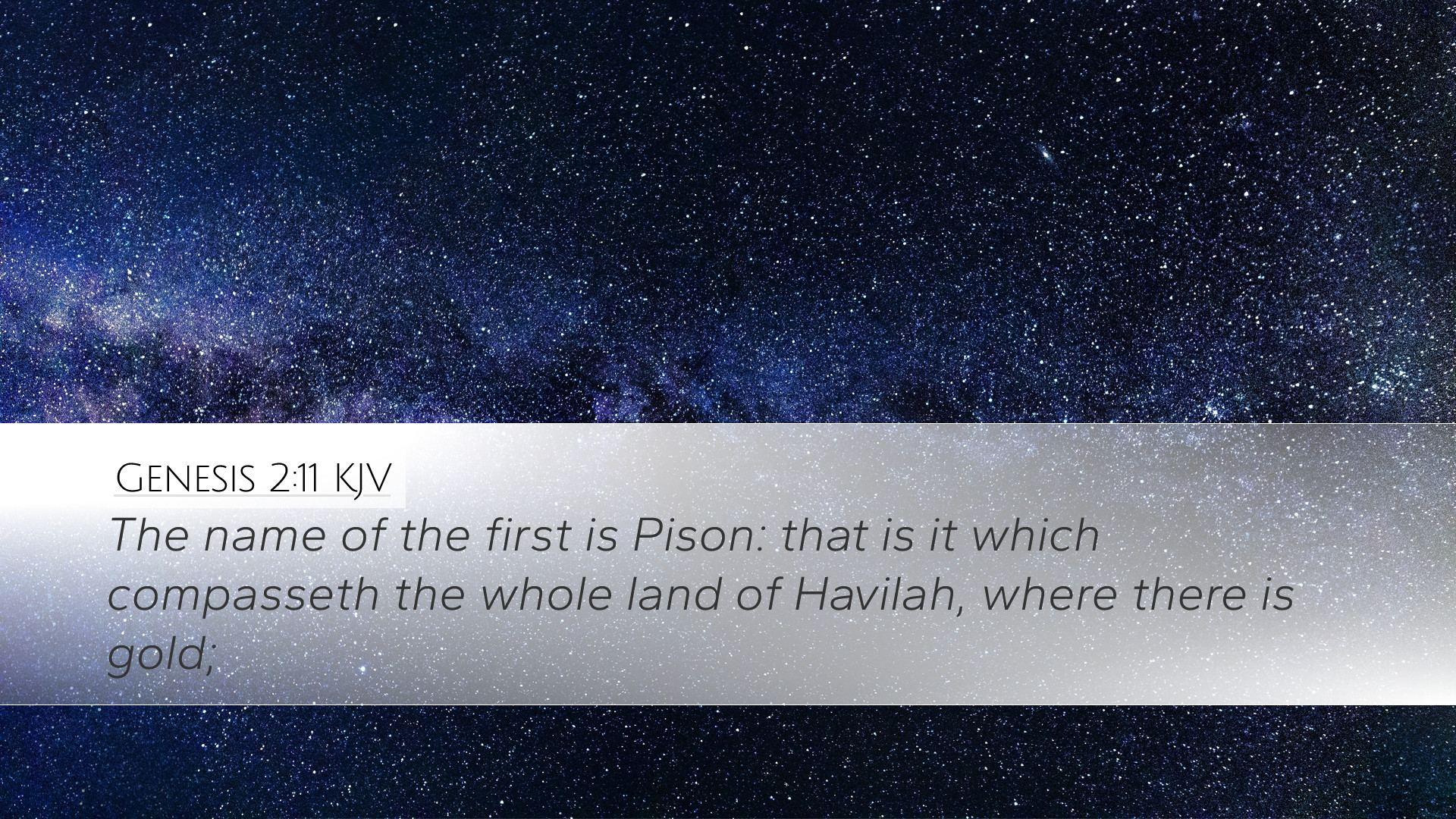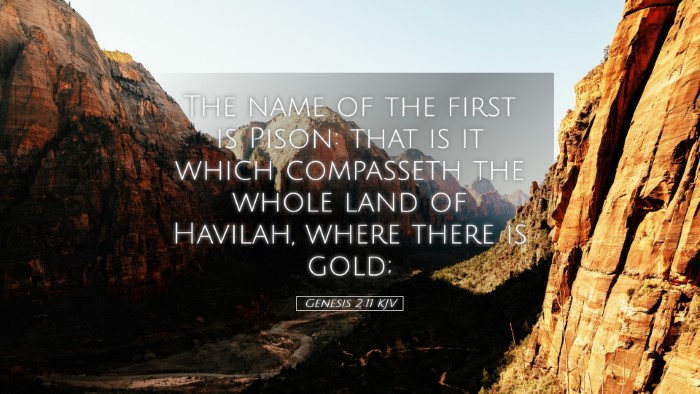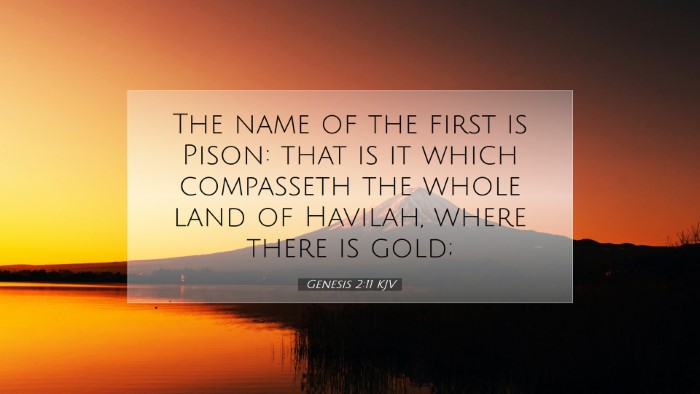Commentary on Genesis 2:11
Genesis 2:11 (KJV): "The name of the first is Pison: that is it which compasseth the whole land of Havilah, where there is gold;"
Introduction
Genesis 2:11 introduces the first river mentioned in the Bible, Pison, and serves as part of a rich narrative detailing the creation and natural beauty of the Garden of Eden. The significance of the name and the location reveals insights into the richness of God's creation and the inherent value of its resources.
Insights from Matthew Henry
Nature of Pison: Matthew Henry emphasizes that the rivers serve both a literal and symbolic purpose in Scripture. The river Pison, according to Henry, symbolizes the providence of God. It is described not only to mark geographical boundaries but also as part of God’s abundant provisions for man in Eden.
- Geographical Implications: Henry notes the significance of Havilah, associating it with the richness of the land. He suggests that the mention of gold points to God's abundant provision and the beauty of His creation.
- Theological Reflection: He encourages readers to reflect on the spiritual treasures found in Christ, drawing a parallel to the physical treasures found in the land of Havilah.
Insights from Albert Barnes
Albert Barnes provides a thorough examination of the location and the attributes of the land surrounding Pison.
- Identification of Pison: Barnes expresses uncertainty regarding the precise location of the river Pison but agrees that its description signifies richness. He highlights how ancient traditions might connect Pison with known rivers like the Indus, which were seen as prosperous areas.
- Symbol of Wealth: Barnes points out the mention of gold as indicative of the land’s fertility and beauty, suggesting that wealth can derive from both natural resources and spiritual blessings.
Insights from Adam Clarke
Adam Clarke’s analysis dives into the linguistic and cultural aspects surrounding the context of this passage.
- Etymological Considerations: Clarke discusses the meaning of Pison, suggesting it may mean ‘to increase,’ which he sees as reflecting the prosperity of the land. This highlights God’s intention for abundance and blessing in His creation.
- Broader Context: According to Clarke, the rich narrative context of Genesis 2 serves to illustrate the grandeur and providence of God in creation. He also emphasizes that each detail, including the description of the rivers, serves to convey deeper meanings about divine provision and care.
Theological Themes
This verse encapsulates several vital theological themes relevant for pastors and scholars:
- Providence of God: The rivers, particularly Pison, serve as a reminder of God's provision. This encourages pastoral reflection on how nature serves God's purposes.
- Resourcefulness and Stewardship: The identification of precious resources in the land encourages discussions on stewardship and the responsible use of God’s creation.
- Spiritual Richness: The contrast between physical treasures and spiritual riches in the teachings of Christ points to a larger biblical theme concerning the value of the soul over material wealth.
Conclusion
Genesis 2:11 introduces not just a geographical feature but rich theological insights about God’s provision, the beauty of creation, and the principles of stewardship. As scholars and pastors reflect on this verse, they are invited to explore the depth of God’s generosity in creation and challenge congregations to recognize both the physical and spiritual wealth bestowed upon humanity.


